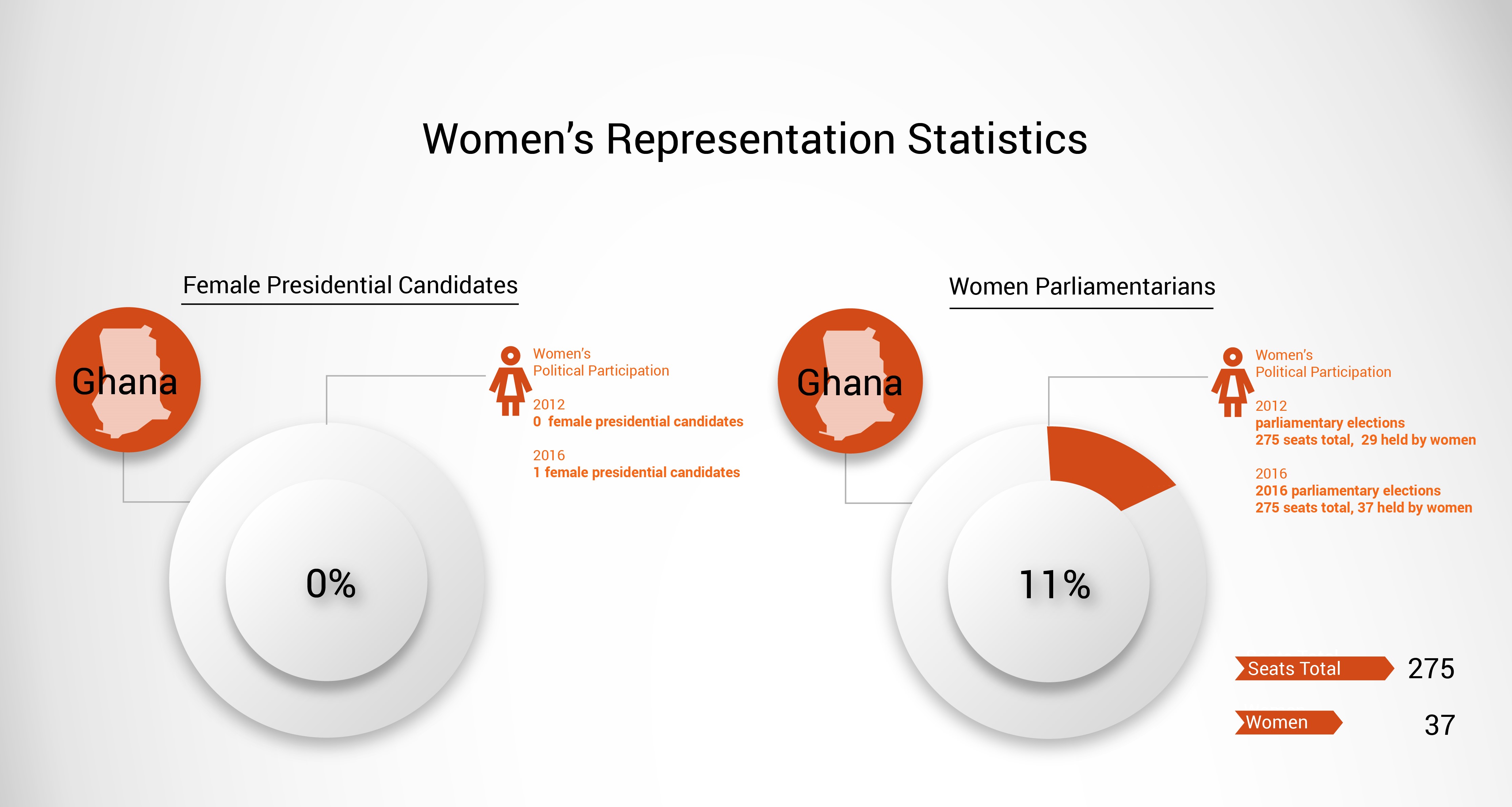2016 Elections Monitoring
Presidential and parliamentary elections were held in Ghana on 7 December 2015. This was the seventh multi-party ballot since the end of military rule in 1992. Ghana has a unicameral Parliament composed of 275 seats and Members of Parliament are directly elected in single-seat constituencies by simple majority vote to serve 4-year terms. The New Patriotic Party won 171 seats, and the National Democratic Congress won 104 seats, leading some to claim that Ghana has effectively become a two-party state.
The presidential elections saw a close battle between incumbent President John Dramani Mahama and his opponent Nana Akufo-Addo. Akufo-Addo, head of the New Patriotic Party (NPP), was pursuing a third attempt at presidency having lost in 2008 and 2012. In Ghana, the president is elected by absolute majority popular vote in 2 rounds (if necessary) for a 4-year term, with eligibility for a second term. In the previous 2012 elections, Mahama was elected with 50.70% of the vote, defeating Afuko-Addo, who finished with 47.74%, however in the 2016 election, Afuko-Addo’s won with 53.85% compared to Mahama’s 44.40%.
Women’s Political Participation
In the parliamentary elections, the women elected rose from 29 in the 2012 elections to 37. This is made up of 24 women elected on the ticket of the New Patriotic Party (NPP) and 13 on the ticket of the National Democratic Congress (NDC). Some gender activists have argued that women’s representation in the legislature was still low, still falling short of the minimum UN recommended threshold of 30%, however this is a notable increase since 1992 when 16 women were elected. There was one female candidate of the 7 candidates in the presidential election, Nana Konadu Agyeman-Rawlings, who also ran in the 2012 presidential elections, but was disqualified as her presidential forms had not been fully completed. She is a former First Lady and prominent women's rights campaigner. She received, however, only 0.16% of the vote.
Whilst Ghana has ratified CEDAW, it has no gender quotas. The European Union Election Observation Mission (EU-EOM) monitoring team noted that in the 2016 elections women were noticeably under-represented in the media’s campaign coverage. This, hand in hand with de facto discrimination against women, traditional beliefs and practices and the monetisation of elections can be further factors hindering the participation of women.
Conclusion
The participation of women in politics in Ghana is on the increase, Ghana should attain the minimum UN recommended threshold of 30% requirement that can result in women’s effective engagement in politics. More needs to be done to address the cultural traditions hindering women, the lack of resources, the lack of affirmative action legislation, and of political support.

